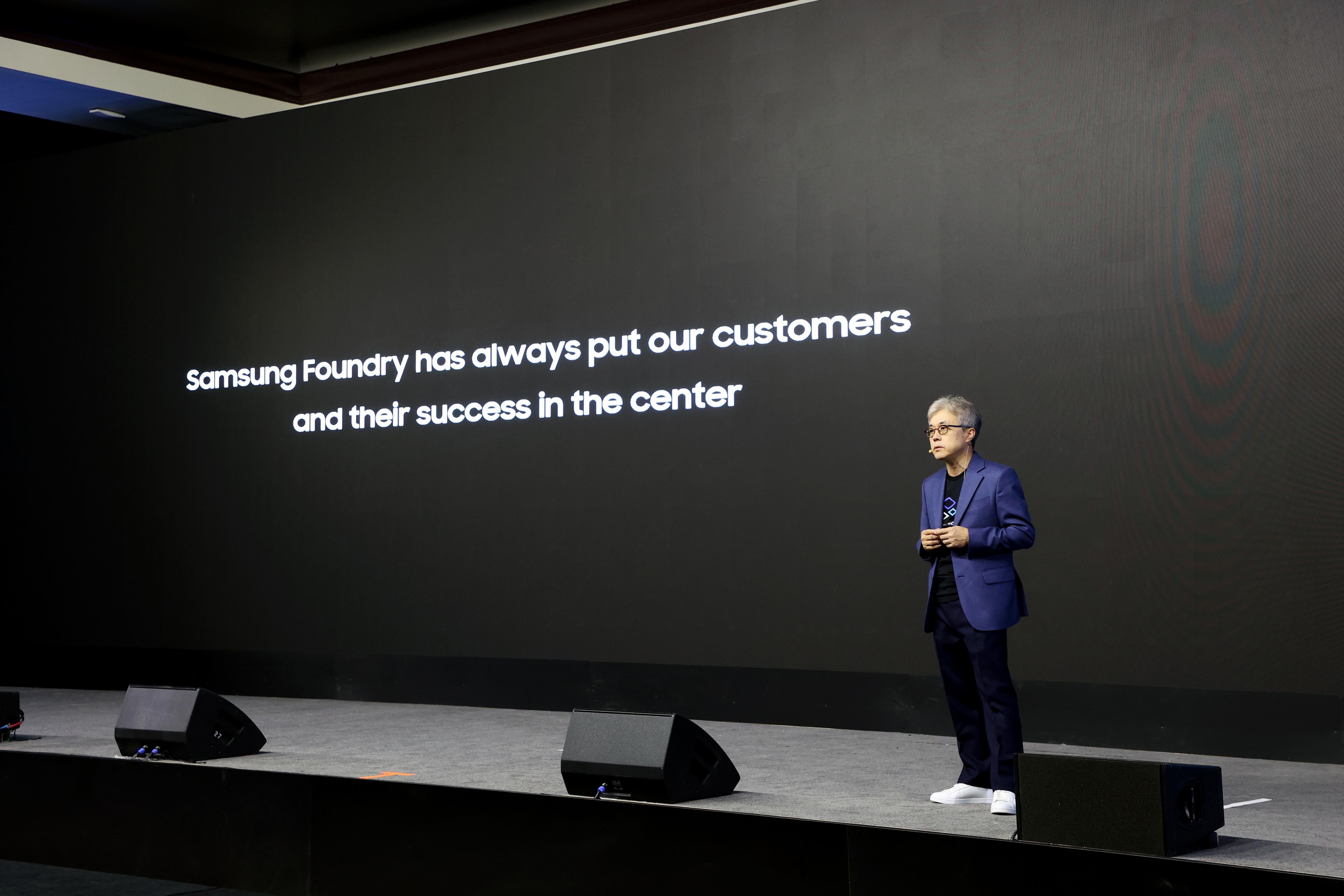Samsung Foundry roadmap: 2nm chips in 2025, 1.4nm process node by 2027

Moore's Law, the observation made by Intel co-founder and former CEO Gordon Moore that calls for the number of transistors in a chip to double every year (later revised to every other year) is barely alive. But that is no surprise since, at the current 3nm process node, we are talking about stuffing billions and billions of transistors inside each chip. Doubling the number of transistors, at this stage, is a very hard feat to accomplish.
Samsung Foundry releases its roadmap revealing the production of 1.4nm chips in 2027
As we've said before, the lower the process node, the higher a chip's transistor count since the transistor sizes are smaller. And the higher the transistor count, the more powerful and energy-efficient a chip is. Samsung plans on mass producing 3nm this year and will begin the production of 2nm chips in 2025. The road map announced today by Samsung continues with the use of the 1.4nm process node in 2027.

Samsung releases a roadmap for its foundry business which includes using a 1.4nm process node in 2027
Samsung Foundry is considered the second largest foundry in the world after TSMC. The latter counts Apple, MediaTek, AMD, Qualcomm, and other big tech names as its customers. Samsung's global market share of 17.3% is second only to the 52.9% of the market owned by TSMC, according to data from TrendForce. Samsung is hoping to close the gap between it and TSMC.
TSMC also plans to ship 3nm chips this year with Apple's A16 Bionic, used to power the iPhone 14 Pro models, manufactured using TSMC's 4nm process node (which is actually an enhanced 5nm node). It is scheduled to start 2nm production in 2025 and has yet to announce anything beyond 2nm.
SK Kim, an analyst at Daiwa Capital Markets, told CNBC that "This is the first time that SEC (Samsung Electronics) guides for its long-term foundry roadmap and I think it is more aggressive than TSMC and market expectations." Part of Samsung's plan to top TSMC calls for it to triple the production capacity for its most advanced chips between now and 2027.
Samsung is also looking to increase its U.S. chip production. It currently has a facility in Austin, Texas, and is building a $17 billion plant in Taylor, Texas. Both the Trump and Biden administrations have been looking to get foundries like TSMC and Samsung to increase production on American soil so that it could reduce its reliance on fabs located in Taiwan and South Korea. TSMC especially has been under the radar with fears that China might invade Taiwan seeking to take over the island possibly for the express purpose of owning TSMC.
TSMC is in the process of building Fab 21 in Phoenix, Arizona with production expected to begin early in 2024. The factory will start with a capacity of 20,000 wafer starts per month using TSMC's N5 (5nm) process node.
Samsung seeks to triple the production of its most advanced chips by 2027
Samsung says that while it plans to triple the production capacity of its most advanced chips by 2027, it adds that its semiconductors for high-performance 5G, computing, and automotive uses will be responsible for more than 50% of the foundry's revenue by 2027. Chips used for many of these purposes are usually older, less advanced chips built on legacy process nodes.
The last few years have seen the chip industry beset by shortages due to the pandemic and surprising demand for chips from automotive manufacturers. Even a company as big as Apple, which wields a large influence over production schedules at TSMC, reportedly lost $6 billion in revenue last year due to the chip shortage. For its 2021 fiscal year, Apple took in $365.82 billion in revenue.
The aggressive roadmap announced by Samsung comes as demand for semiconductors has been dropping off. According to stats released by the U.S.-based Semiconductor Industry Association, chip industry sales worldwide declined by 3.4% in August compared to July.
Dr. Si-young Choi, president and head of Foundry Business at Samsung Electronics, said today, "The technology development goal down to 1.4nm and foundry platforms specialized for each application, together with stable supply through consistent investment are all part of Samsung’s strategies to secure customers' trust and support their success. Realizing every customer’s innovations with our partners has been at the core of our foundry service."










Things that are NOT allowed: